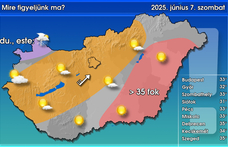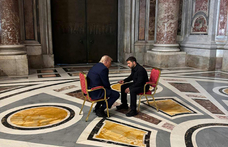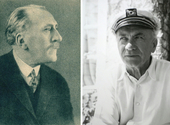Opinion
Looking for venture capital
The success of the community social networking portal iWiW has inspired others to follow. Across Hungary ever more internet companies are seeking to take advantage of Web 2.0. But venture capitalists have little time for these projects, despite the popularity among bloggers.
Janos Lazar
"My ancestors were Greek orthodox sheepfarmers who arrived in the region of Hodmezovasarhely and Mindszent in the 18th century," says Janos Lazar, the mayor of Hodmezovasarhely and one of the most outspoken critics of the coalition's healthcare reforms.
No end to dirty tricks
In a civilised country, national security organisations are not at the centre of the media spotlight. Especially not where normal criminal acts are concerned. But in Hungary, the National Security Office is at the centre of attention because of its investigation into potentially criminal VAT and customs fraud at the Egymasert Egy-masert Alapitvany (For one another, One differently Foundation).
Civil oversight
According to Tibor Jarmy, spokesman for Budapest Police, Laszlo Zoltan Szabo was arrested for resisting "authorised police operations." Csaba Farkas, who teaches at the Police Officers' College, police were behaving appropriately. But the constitutional lawyer Istvan Szikinger believes the justifications offered are flawed.
Györgyi Kocsis
I was profoundly indifferent to the 2012 European Football Championships until Tamas Gyarfas, head of the committee in charge of Hungary's hosting bid, asked how far it was acceptable to go with bribery, said, "until it gets noticed." And then he handed Michel Platini, president of UEFA, a 24 carat golden football.
Not as simple as it looks
Buy two, get one three – the appointment of new health and environment ministers means a new parliamentary commissioner may also follow in the wake of the reshuffle. The prime minister is nonetheless reluctant to contemplate a radical reshaping of the cabinet.
Not worth the paper
The Socialist-Free Democrat government has never been keen on the "national identity document" first issued by the Orban government to ethnic Hungarians in neighbouring countries. There was talk of abolishing it, but the prime minister's office has now announced plans to limit the ID document's duration. Kinga Goncz explained the change of heart, saying: "There was never a problem with the Hungarian identity document. It had only positive effects."
Pal Csaky
My father was a tough, wilful man, strongly anticommunist. In 1975, when I took my school leaving exams, I was told I wouldn't find a place in a Slovak university, so I studied chemistry at Pardubice in the Czech part of the country, says the 51-year-old newly elected leader of the largest ethnic-Hungarian political party in Slovakia.
















